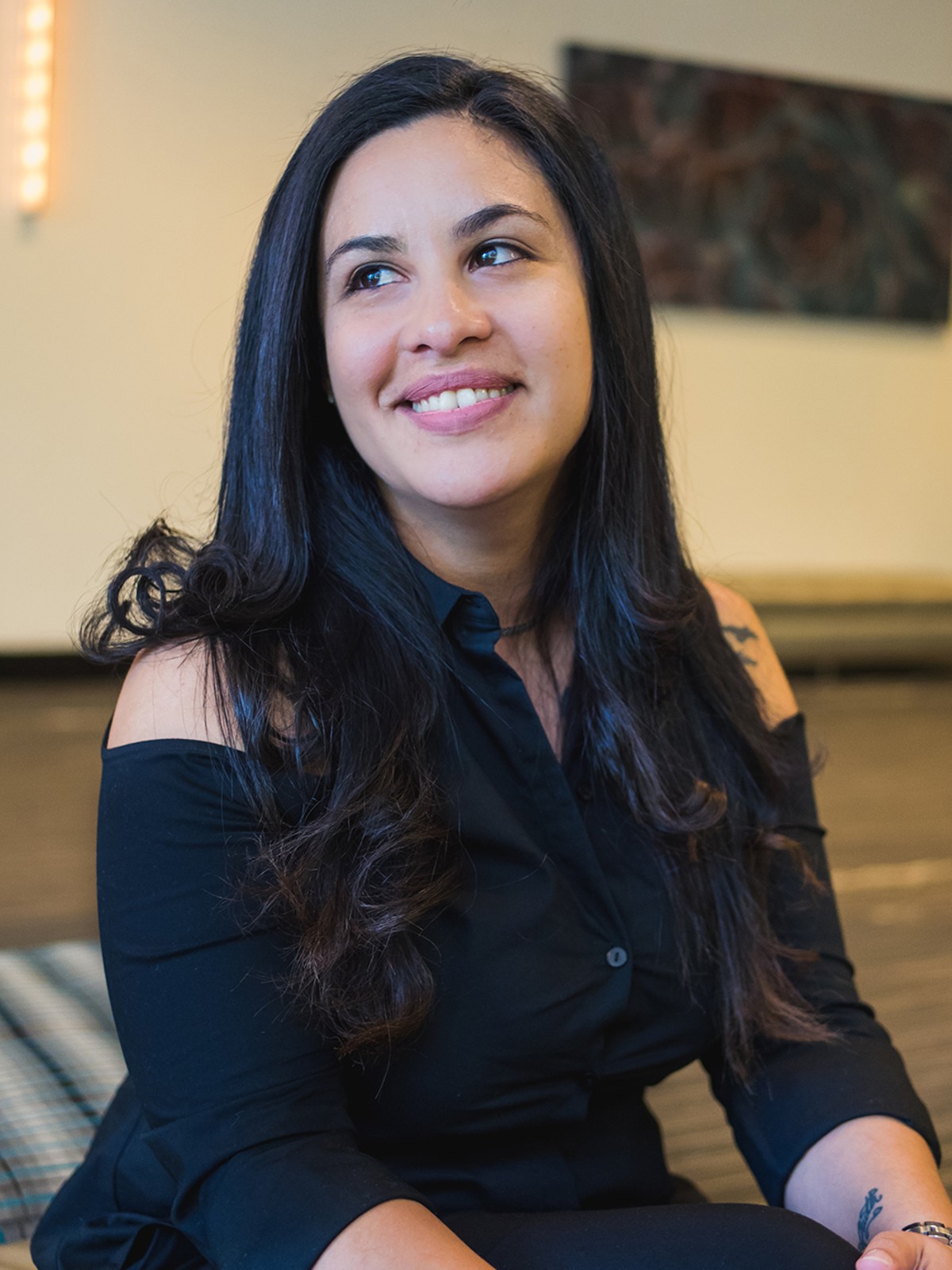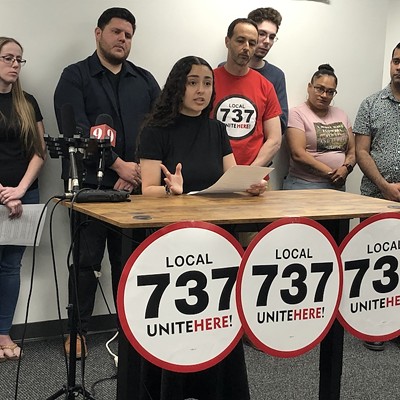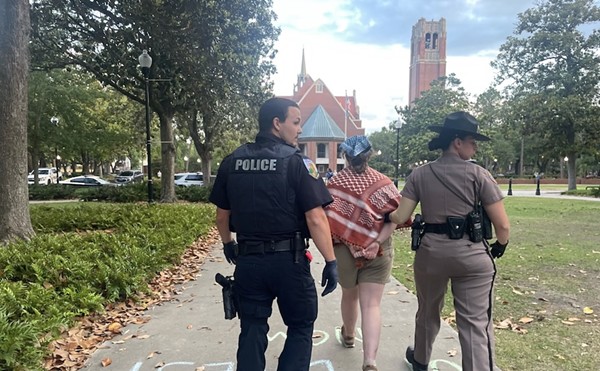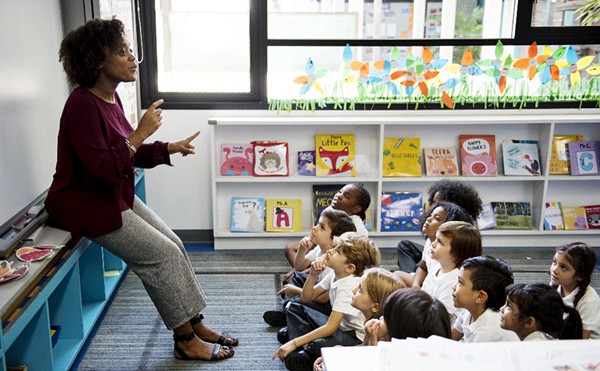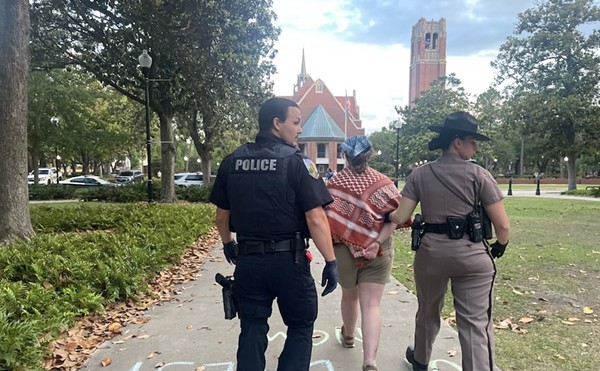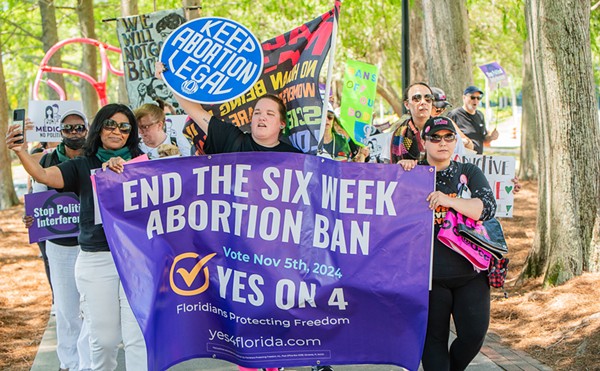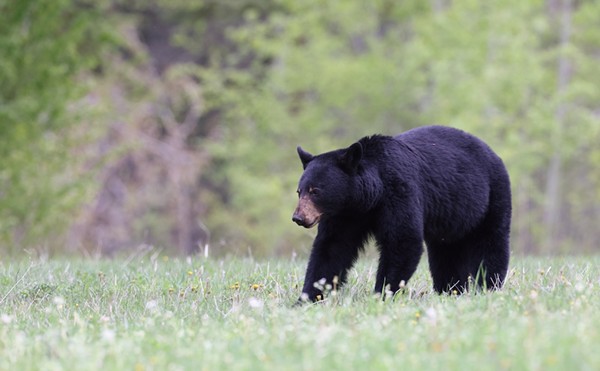The simple act of pulling her thick black hair into a ponytail is an accomplishment for Ilka Marie Reyes.
Every milestone, small as it may be, is a blessing for the 30-year-old after she was shot nine times at Pulse last June. Reyes didn't usually go to Pulse – she preferred Parliament House – but on that night, she drove by herself from Kissimmee to surprise her best friends Simon Carrillo Fernández, Oscar Aracena Montero, Rodolfo Ayala Ayala and Jean Carlos Nieves Rodriguez, who were celebrating a friend's birthday.
She went to the bar for a water when she heard the loud blasts of gunshots that seemed like music at first.
Someone told her to get down. Reyes was pushed to the floor.
Lying on the ground, she realized her pinky was missing. A bullet had ripped it off her right hand. As she played dead, she saw a shadow standing next to her from the corner of her eye, then POP-POP-POP-POP-POP-POP-POP-POP. Eight more bullets ruptured through her back.
When she woke up again, she was in pain, surrounded by friends and family in a hospital bed. Her face was so swollen, she could barely open her eyes. But Reyes does have a clear memory of seeing her mother's worried face.
"Before everything happened, my mom was going through a lot of depression," she says. "She was going through something hard. So I quit my job – I quit everything I was doing just to take care of her. So seeing my mom the first time, like she was there for me, I couldn't ask for anything else. Because of her and God, I'm here."
She couldn't move or walk. It was a blow for Reyes, who had always loved to play sports, especially volleyball and softball. As she recovered in the hospital for about a month, the same question always came up in her mind – why me?
"I didn't think I deserved to go through that," she says. "I'm the person that I never do anything wrong and never did anything bad to other people. I'm always caring and always taking care of other people. I was angry. I was mad. And I thought about so many things, like 'Why didn't I do this? Why didn't I do that?' But at the end of the day, there's nothing you can do, you know? Just gotta leave everything in God's hands."
Quietly, Reyes wondered why her four friends never came to see her. After all, they were more like her brothers. They had taken her on her first cruise. A couple of weeks before Pulse, they had all gone out together to dance. They were probably in the hospital, too, she thought.
After she left Orlando Regional Medical Center to recover at home with her parents, she pushed herself to go to a survivors' event at Osceola Heritage Park. There, she saw angels with her four friends' names and realized they were dead.
"That night was one of the most terrible nights for me," she says, eyes shining. "I still don't accept that they're gone. We were just having fun, you know?"
Reyes says she hasn't been able to bring herself to visit their graves.
"I still think and feel they're here," she says. "They live with me. I feel like the day I choose to go there, that's when I'm finally finalizing that they're gone, that they're not here. I'm not ready for that."
When Reyes got home, she had no income and her parents weren't working because they were taking care of her, but the bills continued to pile up. They struggled financially for months until the money from the OneOrlando Fund came in October. Reyes was still bedridden, going from appointment to appointment for physical therapy and counseling. Her parents and friends would have to help her shower and dress because her legs were weak and it was painful to move or lift her left arm and shoulder.
"Trying to walk again was one of the hardest things," she says. "I started stretching and forced my legs to move. I had to learn how to get dressed by myself. I would crawl or I would have to sit down and grab one of my legs to do it. I had to learn how to eat, brush my teeth and sign and do all the things with my right hand because I'm a leftie."
She now goes to therapy twice a week but feels her arm is getting stronger.
"I know I'm going to get there," Reyes says. "I can take a bath by myself now, I can do my hair a little bit and a ponytail. I'm really an independent woman, so it's a big challenge for me."
Almost a year later, Reyes says she still has nights where she wakes up screaming and sweating. She can't listen to fireworks or weird noises. When she's driving and stops her car, she gets flashbacks and becomes paranoid that someone is after her. And she always has to keep the exit of a building within her view. With a bright smile on her face, though, Reyes says she works to stay positive.
"I feel like after what I've been through, I'm stronger than ever," she says. "I'm sure of things that I want to do."
Reyes wants to thank the community who's sent love and support to survivors and victims' families, especially the children who sent her drawings while she was in the hospital. And she wants people to know she and other survivors are still here, still going to therapy appointments, still having surgeries, still fighting for it.
"Sometimes I think they forgot more about us and they focus more on the people that passed away," she says. "But I still suffer. I miss my friends. At the same time, I'm grateful. I'm blessed that I'm here with my family. ... It's something that I live with every day. It doesn't matter how long it's been. For me, it's still like yesterday."

